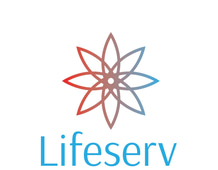The Green Wave across Europe: How EU regulations and National Health Bodies (NHS, G-BA, ANSM) are driving Sustainable Healthcare.
Discover some of the powerful forces driving sustainable healthcare acrosss Europe! This article examines EU regulations and the proactive steps taken by national health bodies like the NHS, G-BA and ANSM, and how Lifeserv is responding.
Prince M
5/6/20253 min read


My The winds of change are blowing across Europe, and the healthcare sector is feeling their force.Driven by ambitious European Union policies and proactive initiatives from national healthbodies, a significant shift towards sustainable healthcare is underway. For companies likeLifeserv, committed to providing eco-friendly medical consumables, personal hygiene, and homecare solutions, this evolving landscape presents both challenges and exciting opportunities.
The EU's Ambitious Green Agenda
The European Union has placed sustainability at the heart of its long-term strategy, with initiatives like the European Green Deal setting ambitious targets for reducing emissions, promoting a circular economy, and fostering a healthier environment. These overarching goals are increasingly translating into specific regulations impacting the healthcare sector.
We're seeing a growing emphasis on: ● Waste Reduction: Policies aimed at minimizing medical waste, promoting recycling, and encouraging the use of reusable alternatives where safe and practical. ● Sustainable Procurement: Directives encouraging public and private healthcare providers to prioritize environmentally friendly products and services in their purchasing decisions. ● Chemical Restrictions: Regulations limiting the use of harmful substances in medical devices and other healthcare products. ● Lifecycle Assessment: A growing focus on evaluating the environmental impact of healthcare products throughout their entire lifecycle, from raw material extraction to disposal. ● Energy Efficiency: Incentives and regulations pushing healthcare facilities to reduce their energy consumption and transition to renewable sources. These policy shifts are creating a clear direction for the healthcare industry, signaling that sustainability is no longer a niche concern but a fundamental requirement for the future.
National Health Bodies Taking the Lead Across Europe, national health organizations are stepping up to align with these EU directives and implement their own ambitious sustainability agendas:
● The National Health Service (NHS) in the UK: The NHS has been a prominent leader in this area, setting ambitious targets to become net zero for its direct emissions by 2040 and for its wider supply chain emissions by 2045. Initiatives include investing in energy-efficient buildings, promoting sustainable travel for staff and patients, and actively seeking out and procuring greener medical supplies. Their "For a Greener NHS" program provides a comprehensive framework for action.
● The Gemeinsamer Bundesausschuss (G-BA) in Germany: As the self-governing body of the statutory health insurance funds, the G-BA is increasingly considering environmental aspects in its quality assurance measures and guidelines. While direct regulations might differ, the emphasis on value-based healthcare is implicitly linked to resource efficiency and minimizing waste. There's a growing awareness of the environmental impact of pharmaceuticals and medical devices.
● The Agence nationale de sécurité du médicament et des produits de santé (ANSM) in France: The ANSM, the French regulatory agency for health products, is paying increasing attention to the environmental impact of medical devices and pharmaceuticals. This includes evaluating the lifecycle of products and promoting practices that minimize environmental risks associated with their use and disposal.
● Beyond the Big Players: Similar initiatives, tailored to national contexts and healthcare systems, are emerging across Europe. From Sweden's focus on sustainable public procurement to Spain's efforts in reducing hospital waste and Poland's growing awareness of green healthcare practices, a collective movement is building.
Lifeserv's Commitment in a Changing Landscape For Lifeserv, these evolving regulations and the proactive steps taken by national health bodiesreinforce our core mission. We are committed to providing sustainable alternatives that helphealthcare providers and individuals reduce their environmental footprint. ● Anticipating Regulatory Shifts: We are closely monitoring EU policy developments andnational guidelines to ensure our products align with future requirements. ● Partnering for Progress: We are actively collaborating with suppliers and researchinstitutions to explore and develop innovative, sustainable materials and product designs. ● Empowering Sustainable Choices: We aim to provide clear information about theenvironmental benefits of our products, enabling healthcare professionals and consumers#to make informed decisions.
The Path Forward: The journey towards a truly sustainable healthcare system in Europe is a marathon, not a sprint.It requires collaboration, innovation, and a shared commitment from policymakers, health care providers, industry players, and individuals. The momentum is building, driven by clear EU directives and the determined efforts of national health bodies.
At Lifeserv, we are proud to be part of this green wave. By focusing on providing sustainable medical consumables, personal hygiene, and home care solutions, we aim to contribute to a healthier future for both people and the planet, navigating the evolving regulatory landscape and supporting the vital work of healthcare organizations across Europe.
Sustainable Solutions for a Healthier Tomorrow
Contact us:
info@lifeservglobal.com
Lifeserv Ltd 2025. All rights reserved.
